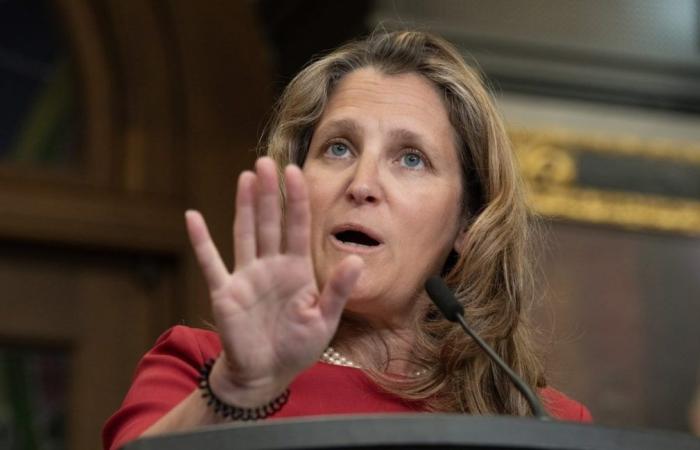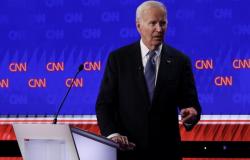OTTAWA — Federal Finance Minister Chrystia Freeland said Monday that Ottawa is studying the possibility of imposing a surtax on imports of electric vehicles made in China.
A 30-day consultation on the issue will begin on July 2 to counter what Ms Freeland sees as a clear effort by Chinese companies to generate global oversupply.
Canada’s move comes weeks after the United States and the European Commission announced plans to impose higher import tariffs on Chinese electric vehicles this summer.
The consultation will aim to determine what is driving China’s boom in electric vehicle exports, including unfair market practices as well as labor and environmental standards.
In addition to a surcharge, the consultation will examine whether Canada should change which cars qualify for the zero-emission vehicle incentive program, worth up to $5,000 per vehicle.
The possibility of expanding investment restrictions in Canada will also be examined.
In 2021, almost 80% of all lithium-ion batteries for electric vehicles worldwide came from China. The International Energy Agency says nearly 60% of electric vehicles sold globally are now made in China.
Measures from the European Commission and the United States
Accusations that China boosted its own electric vehicle industry through unfair subsidies led Europe and the United States to retaliate this spring.
US President Joe Biden announced in mid-May that he would increase tariffs on Chinese electric vehicles from 25% to 100% this year, although there is only one Chinese electric vehicle currently available in the United States.
Mr. Biden also announced increased tariffs on lithium-ion batteries and some other clean energy products, including solar cells.
The European Commission is still investigating China subsidies, but announced two weeks ago that it would impose provisional tariffs of between 17% and 38% on Chinese-made electric vehicles starting July 4 .
That plan could change, however, as Europe and China have agreed to begin negotiations on the issue over the weekend.
Chinese-made electric vehicles now represent 8% of the European market, compared to 1% in 2019. Europe argues that its preliminary findings confirmed that Chinese electric vehicles benefit from an “unfair subsidy”.
Many Chinese electric vehicles are significantly cheaper than similar models made in Europe.
Since 2020, Canada has attracted more than $46 billion in investment for 13 electric vehicle, battery and battery component manufacturing projects.
Ottawa and the provinces have jointly promised up to $53 billion in return, notably in the form of tax credits, production subsidies and capital investments.






